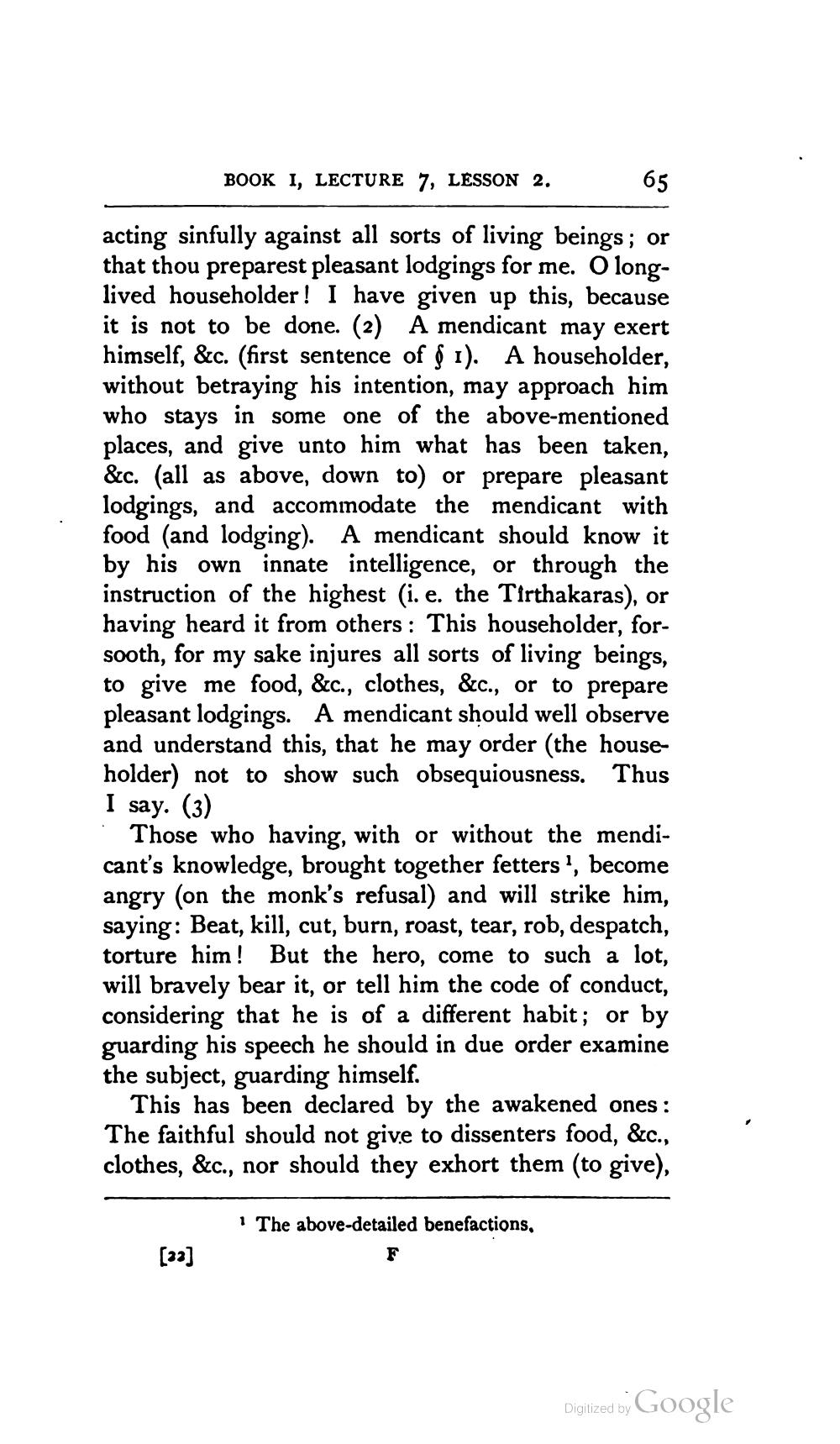________________
BOOK I, LECTURE 7, LESSON 2.
65
acting sinfully against all sorts of living beings; or that thou preparest pleasant lodgings for me. O longlived householder! I have given up this, because it is not to be done. (2) A mendicant may exert himself, &c. (first sentence of § 1). A householder, without betraying his intention, may approach him who stays in some one of the above-mentioned places, and give unto him what has been taken, &c. (all as above, down to) or prepare pleasant lodgings, and accommodate the mendicant with food (and lodging). A mendicant should know it by his own innate intelligence, or through the instruction of the highest (i. e. the Tirthakaras), or having heard it from others : This householder, forsooth, for my sake injures all sorts of living beings, to give me food, &c., clothes, &c., or to prepare pleasant lodgings. A mendicant should well observe and understand this, that he may order (the householder) not to show such obsequiousness. Thus I say. (3)
Those who having, with or without the mendicant's knowledge, brought together fetters', become angry (on the monk's refusal) and will strike him, saying: Beat, kill, cut, burn, roast, tear, rob, despatch, torture him! But the hero, come to such a lot, will bravely bear it, or tell him the code of conduct, considering that he is of a different habit; or by guarding his speech he should in due order examine the subject, guarding himself.
This has been declared by the awakened ones : The faithful should not give to dissenters food, &c., clothes, &c., nor should they exhort them (to give),
1 The above-detailed benefactions,
Digitized by
Digitized by Google




